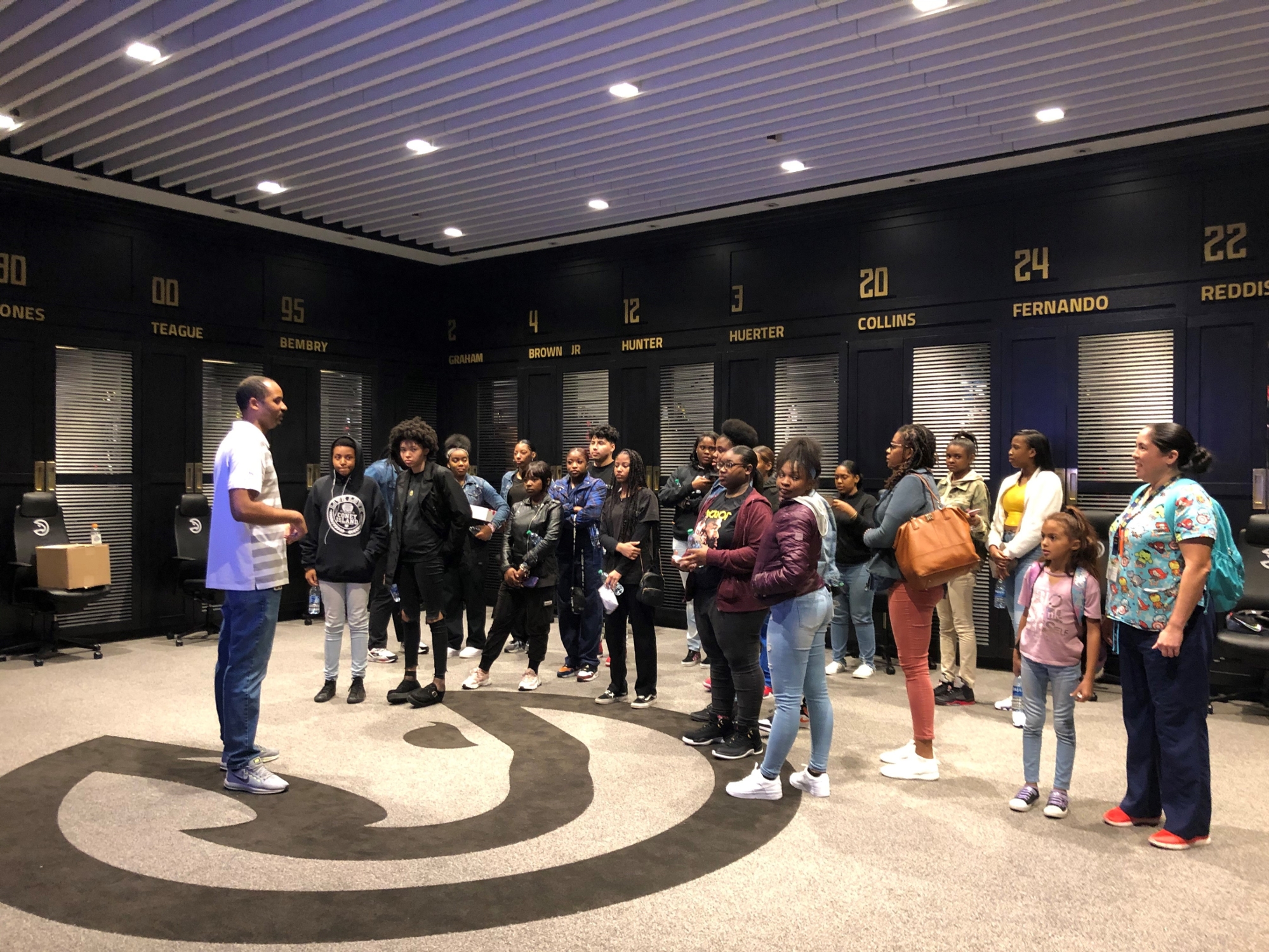During each of three successive academic years, EPiC Scholars and their undergraduate mentors participate in a 12-session after-school mentoring and health science education program. Sessions are led by graduate and professional students in medicine, public health, and health sciences. The students work in small groups to study sexual health as sophomores, mental health as juniors, and community health in their senior year. College readiness and health career awareness activities are infused throughout the curriculum.
EPiC partners with the Emory Pipeline student organization to implement the academic year sessions. Pipeline's student leadership recruits the undergraduate mentors and graduate student teachers, develops and implements lesson plans, and manages session logistics.


